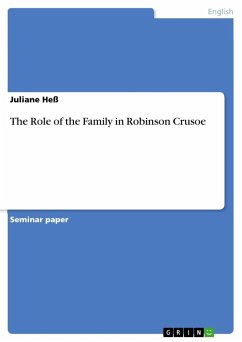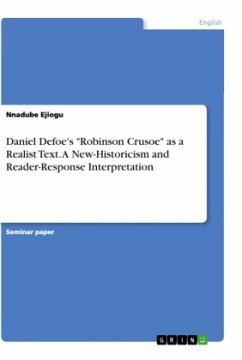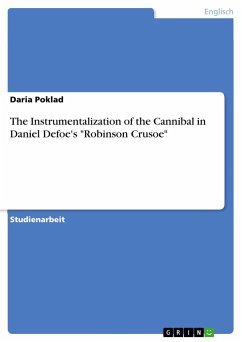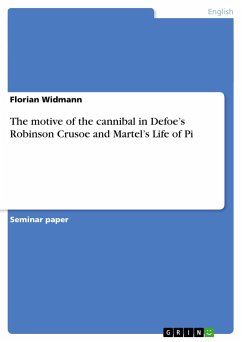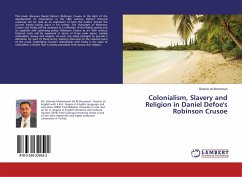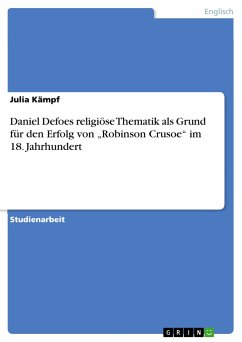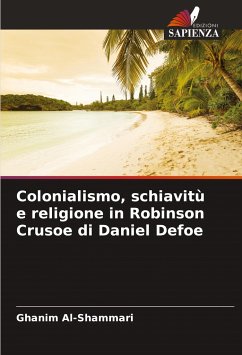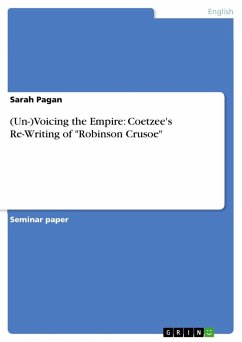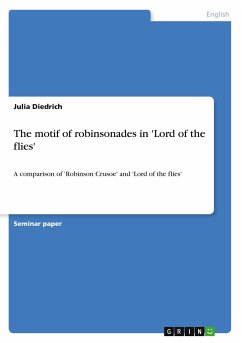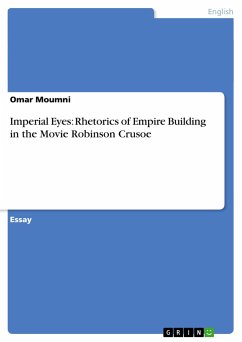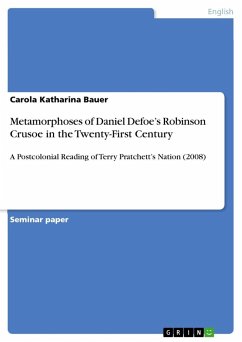
Metamorphoses of Daniel Defoe's Robinson Crusoe in the Twenty-First Century
A Postcolonial Reading of Terry Pratchett's Nation (2008)

PAYBACK Punkte
0 °P sammeln!
Seminar paper from the year 2010 in the subject English Language and Literature Studies - Literature, grade: 1,00, University of Bayreuth, language: English, abstract: "There scarce exists a work so popular as Robinson Crusoe. It is read eagerly by young people; and there is hardly an elf so devoid of imagination as not to have supposed for himself a solitary island in which he could act Robinson Crusoe, were it but in the corner of the nursery." (Ballantyne 7)With these words, John Ballantyne reinstates Robinson Crusoe (1719) as a novel appealing to younger readers in his essay about "Daniel ...
Seminar paper from the year 2010 in the subject English Language and Literature Studies - Literature, grade: 1,00, University of Bayreuth, language: English, abstract: "There scarce exists a work so popular as Robinson Crusoe. It is read eagerly by young people; and there is hardly an elf so devoid of imagination as not to have supposed for himself a solitary island in which he could act Robinson Crusoe, were it but in the corner of the nursery." (Ballantyne 7)With these words, John Ballantyne reinstates Robinson Crusoe (1719) as a novel appealing to younger readers in his essay about "Daniel De Foe [sic]", published in 1810. And indeed: Although the implicit reader of the first novel in English literature was not specifically mentioned to be of young age, "children have been its principal readers throughout the [last 300] years" (Lundin 199). Thus, it is not surprising that novels also popular with a younger audience - such as Treasure Island by Robert Louis Stevenson - resemblethe famous castaway narrative by repeating its main topics and motifs like the solitary island and the shipwreck (Green 143). One of the more recent adaptations of Robinson Crusoe is Terry Pratchett's Nation, published in 2008: Taking place "on a South Sea island in a skewed version of the 19th century" (Boyce), the story centers around the cultural encounter of the shipwrecked, adolescent daughter of a British colonial governor, called Daphne, with an indigenous boy named Mau, whose whole nation was obliterated by a tsunami.Whereas Robinson Crusoe can be clearly considered to be an imperialist and racist novel, with its protagonist becoming the "true symbol of the British conquest" - as James Joyce puts it in his essay about Daniel Defoe in 1912 (Joyce 10) - Pratchett's book has been appraised by critics as a "novel of ideas, a ferocious questioning of vested cultural attitudes and beliefs" (Dirda), and said to reveal "the stupidity of "ignorance and prejudices [i.e. concerning race]" (Tucker). But, taking Claire Bradford's warning into account that contemporary children's literature dealing with cultural difference is "not necessarily free of the ideological freight of those earlier times [i.e. colonialist discourse]" (Bradford 48), my research paper will look at Terry Pratchett's Nation in detail: With a theoretical approach based on Postcolonial Theory and Critical Whiteness Studies, this postmodern version of Daniel Defoe's novel will be analyzed with special regard to its concepts of race, gender, and culture.




